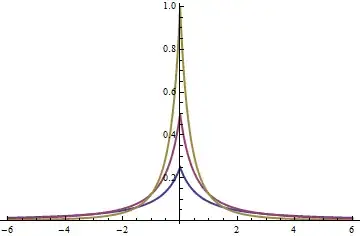Assume a scalar random variable $X$ belongs to a vector-parameter exponential family with p.d.f.
$$ f_X(x|\boldsymbol \theta) = h(x) \exp\left(\sum_{i=1}^s \eta_i({\boldsymbol \theta}) T_i(x) - A({\boldsymbol \theta}) \right) $$
where ${\boldsymbol \theta} = \left(\theta_1, \theta_2, \cdots, \theta_s \right )^T$ is the parameter vector and $\mathbf{T}(x)= \left(T_1(x), T_2(x), \cdots,T_s(x) \right)^T$ is the joint sufficient statistic.
It can be show that the mean and the variance for each $T_i(x)$ exist. However, do the mean and the variance for $X$ (i.e. $E(X)$ and $Var(X)$) always exist as well? If not, is there an example of an exponential family distribution of this form whose mean and variable do not exist?
Thank you.
